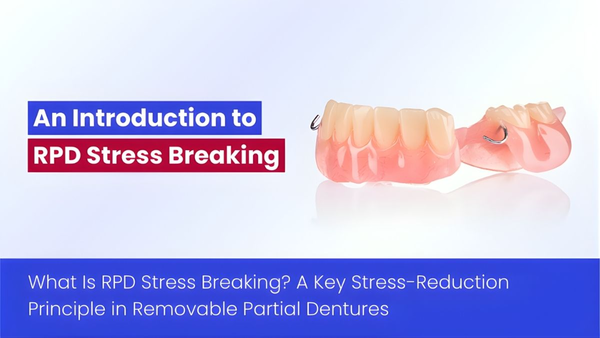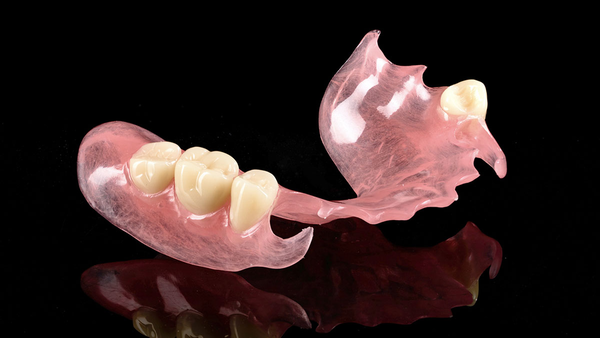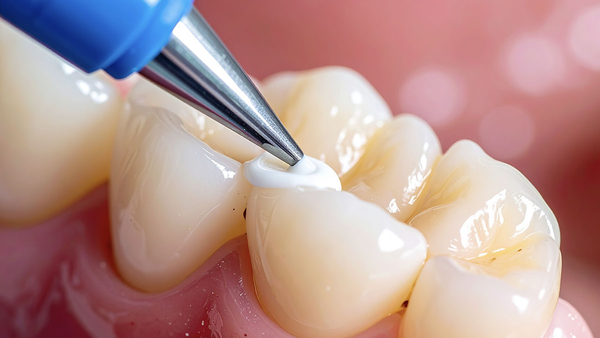Metal-based frameworks are essential in dentistry, providing structural support for removable partial dentures, implant-supported restorations, and fixed dental prostheses. The three primary materials used for these frameworks are Cobalt-Chromium (Co-Cr) alloys, Titanium (Ti) and its alloys, and Precious Metal alloys.
Table of contents [Show]
Metal-based frameworks are essential in dentistry, providing structural support for removable partial dentures, implant-supported restorations, and fixed dental prostheses. The three primary materials used for these frameworks are Cobalt-Chromium (Co-Cr) alloys, Titanium (Ti) and its alloys, and Precious Metal alloys. Each material offers unique advantages and limitations, making them suitable for specific applications.
Cobalt-Chromium (Co-Cr) Frameworks
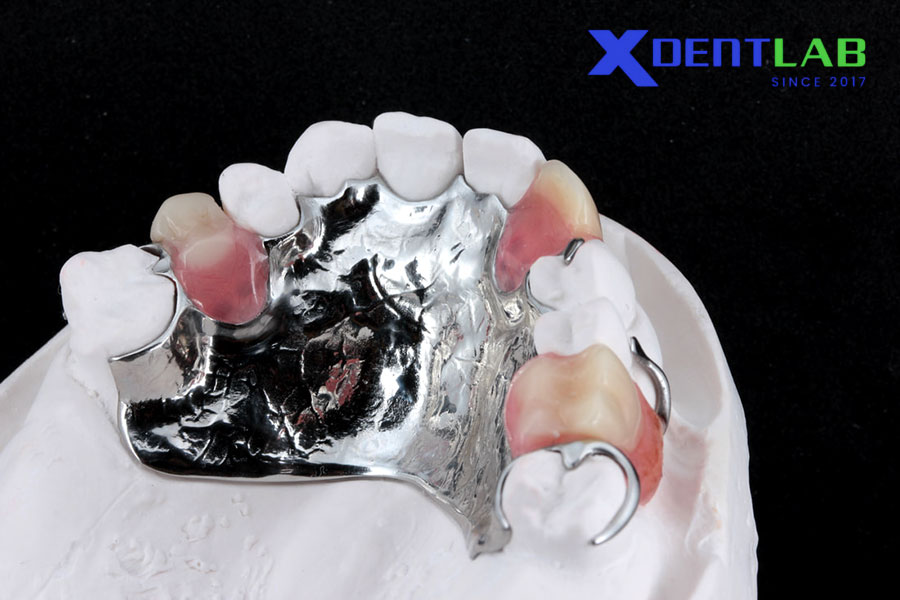
Properties and Characteristics
Cobalt-Chromium alloys are the standard for cast partial denture frameworks due to their:
- High Strength: Excellent mechanical properties for load-bearing applications.
- Heat Resistance: Reliable under thermal cycling.
- Corrosion Resistance: Chromium oxide layer protects against degradation.
- Non-Magnetic Properties: Compatible with MRI imaging.
Composition
Typical Co-Cr alloys contain:
- Cobalt: 50-65% (primary constituent).
- Chromium: 25-35% (provides corrosion resistance).
- Molybdenum: 4-6% (grain refinement).
- Other Elements: Carbon, silicon, manganese (minor additions).
Applications
Co-Cr frameworks are widely used for:
- Removable Partial Dentures (RPDs): Primary choice for framework construction.
- Implant Superstructures: Bar attachments and hybrid prostheses.
- Fixed Dental Prostheses: Long-span bridges.
- Orthodontic Appliances: Space maintainers and retainers.
Advantages
- Cost-Effective: Affordable compared to precious metal alloys.
- High Strength-to-Weight Ratio: Allows thinner, more comfortable designs.
- Durability: Resistant to wear and corrosion.
Limitations
- Difficult Adjustments: High hardness complicates chairside modifications.
- Casting Challenges: Requires specialized equipment.
- Potential Allergies: Some patients may react to nickel or chromium.
Titanium (Ti) Frameworks
Properties and Characteristics
Titanium is gaining popularity due to its:
- Lightweight Nature: 400% lighter than Co-Cr alloys.
- Biocompatibility: Excellent tissue response and osseointegration.
- Corrosion Resistance: Performs well in oral fluids.
- Low Thermal Conductivity: Improves patient comfort.
Types of Titanium Used
- Commercially Pure Titanium (CP Ti): Grades 1-4 with varying oxygen content.
- Titanium Alloys: Ti-6Al-4V is the most common for dental applications.
Manufacturing Methods
Titanium frameworks are produced using:
- CAD/CAM Milling: Precision frameworks.
- Selective Laser Melting (SLM): Additive manufacturing for complex designs.
Applications
Titanium frameworks are ideal for:
- Removable Partial Dentures: Lightweight alternative to Co-Cr.
- Implant-Supported Frameworks: Compatible with titanium implants.
- Full-Arch Restorations: All-on-4 and All-on-6 concepts.
Advantages
- Hypoallergenic: Perfect for patients with sensitivities.
- MRI Compatibility: Non-ferromagnetic properties.
- Long-Term Stability: Resistant to corrosion or degradation.
Limitations
- Higher Cost: More expensive than Co-Cr.
- Processing Challenges: Requires specialized equipment.
- Surface Treatment Needs: May require coatings for esthetics.
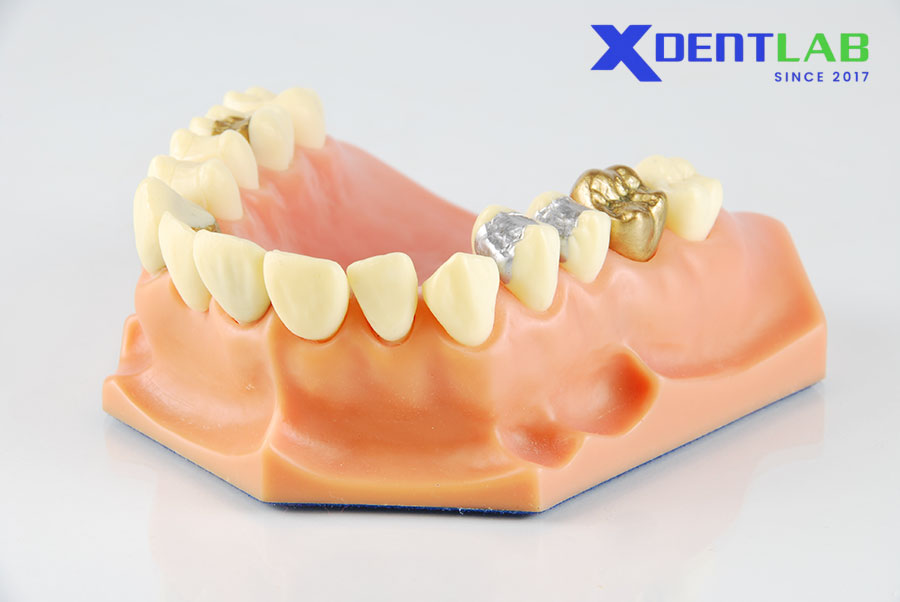
Types and Composition
Precious metal alloys include:
- High Noble Alloys: >60% noble metal content (Au, Pt, Pd).
- Noble Alloys: >25% noble metal content.
- Gold-Based Alloys: Traditional premium choice.
- Palladium-Based Alloys: Cost-effective noble alternative.
Properties
- Biocompatibility: Minimal tissue irritation.
- Corrosion Resistance: Stable in the oral environment.
- Casting Properties: Precise reproduction of details.
Applications
Precious metal frameworks are preferred for:
- Premium Fixed Prostheses: Crown and bridge frameworks.
- Telescopic Dentures: Precision attachments.
- Implant Superstructures: Where biocompatibility is critical.
Advantages
- Proven Biocompatibility: Long clinical track record.
- Aesthetic Compatibility: Matches ceramic expansion rates.
Limitations
- High Cost: Precious metals are the most expensive option.
- Weight: Heavier than Co-Cr and titanium frameworks.
Comparative Analysis
Mechanical Properties
Property | Co-Cr | Titanium | Precious Metals |
| Elastic Modulus | 200-220 GPa | 100-120 GPa | 80-100 GPa |
| Yield Strength | 500-800 MPa | 240-550 MPa | 200-450 MPa |
| Density | 8.3-8.5 g/cm³ | 4.5 g/cm³ | 10-19 g/cm³ |
| Hardness | 350-450 HV | 150-350 HV | 100-250 HV |
Clinical Performance Factors
- Biocompatibility: Titanium > Precious Metals > Co-Cr.
- Cost: Co-Cr < Titanium < Precious Metals.
- Weight: Titanium < Co-Cr < Precious Metals.
Future Trends and Innovations
- Advanced Alloy Development: Improved formulations for biocompatibility and strength.
- Digital Integration: AI-assisted design and automated manufacturing.
- Hybrid Frameworks: Combining materials like titanium bases with precious metal superstructures.
Conclusion
Metal-based frameworks are indispensable in dentistry, offering strength, durability, and biocompatibility for prosthetic applications. The choice between Cobalt-Chromium, Titanium, and Precious Metal alloys depends on clinical requirements, patient needs, and budget considerations.
At XDENT LAB, we specialize in crafting high-quality frameworks using advanced materials and digital workflows to meet U.S. market standards. Whether you need cost-effective Co-Cr frameworks, lightweight titanium solutions, or premium precious metal restorations, we are your trusted partner for lab-to-lab dental services.
Contact XDENT LAB today to learn how we can elevate your dental practice!
XDENT LAB is an expert in Lab-to-Lab Full Service from Vietnam, with the signature services of Removable & Implant, meeting U.S. market standards – approved by FDA & ISO. Founded in 2017, XDENT LAB has grown from local root to global reach, scaling with 2 factories and over 100 employees.. Our state-of-the-art technology, certified technicians, and commitment to compliance make us the trusted choice for dental practices looking to ensure quality and consistency in their products.
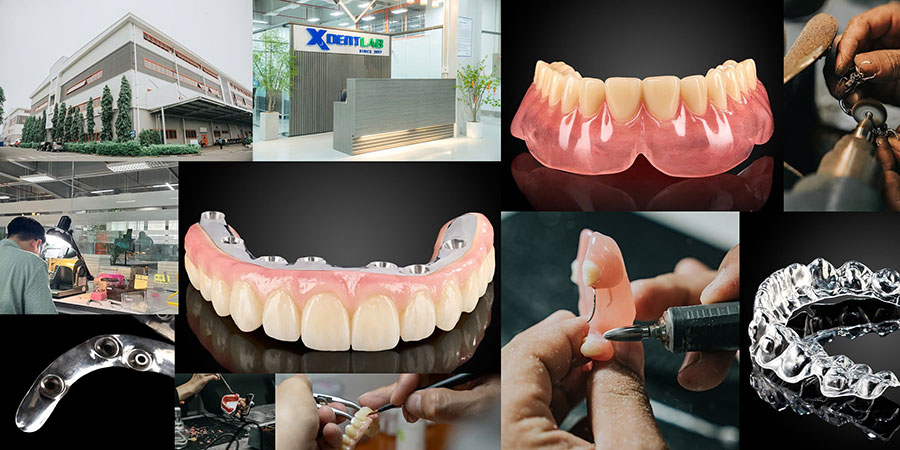
Our commitments are:
100% FDA-Approved Materials.
Large-Scale Manufacturing, high volume, remake rate < 1%.
2~3 days in lab (*digital file).
Your cost savings 30%.
Uninterrupted Manufacturing 365 days a year.
Contact us today to establish a strategy to reduce operating costs.
--------❃--------
Vietnam Dental Laboratory - XDENT LAB
🏢 Factory 1: 95/6 Tran Van Kieu Street, Binh Phu Ward, Ho Chi Minh City, Vietnam
🏢 Factory 2: Kizuna 3 Industrial Park, Can Giuoc Commune, Tay Ninh Province, Vietnam
☎ Hotline: 0919 796 718 📰 Get detailed pricing
Share this post:

